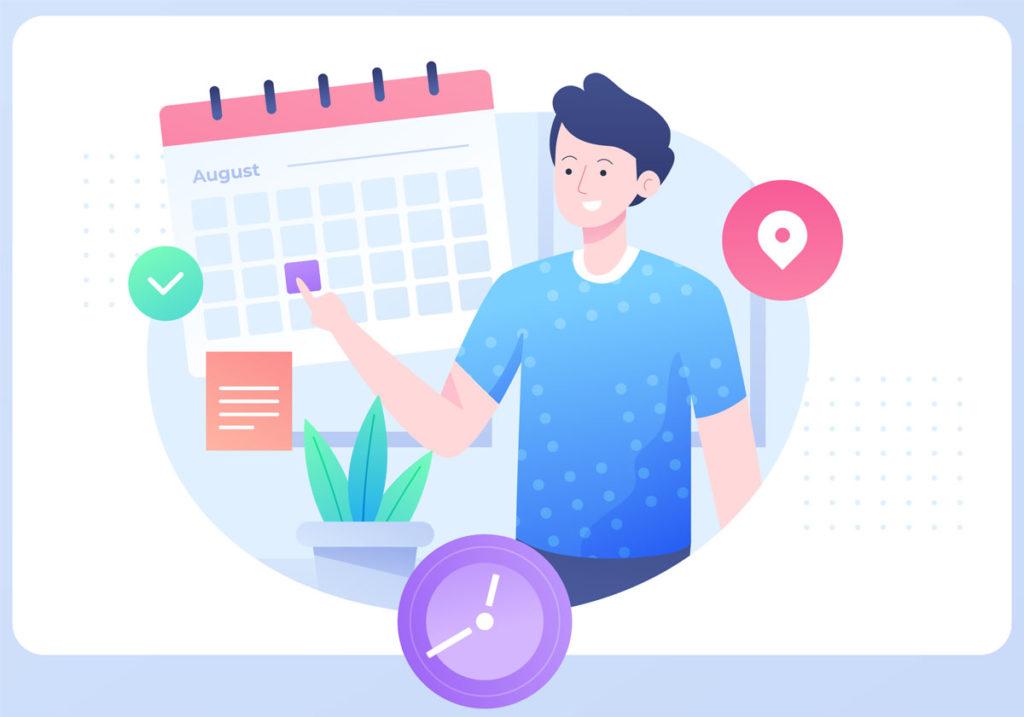User experience is as much about feeling safe as it is about feeling satisfied, and a well-designed website takes both into account. Security should be a top priority for any web designer, whether they’re creating a new site or working on an existing one. There is a lot to consider when it comes to security, but here are 15 of the most important reasons to keep it in mind.
You Can’t Always Control What Happens On Your Website
Even if you take all the necessary precautions and implement the best practices, there are still some things that are out of your control. For example, if someone else hosts your website, they may not have the same level of security that you do. And if you use third-party plugins or code, you could be opening yourself up to vulnerabilities. This is an especially important WordPress security consideration, given that so much of a WP site runs on plugins and third-party trust.
Security Is Important For Protecting Your Website And Its Users
When you take measures to secure your website, you’re not just protecting yourself and your business—you’re also protecting your users. By ensuring that your site is safe and secure, you’re giving your users peace of mind and helping to build trust.
Google, more and more, is taking security into account when ranking websites. So not only is it important for the safety of your site and its users, but it’s also becoming increasingly important for SEO. As digital and cyber literacy improves among web users, things like bounce rate and time on site will only become more important factors in Google’s algorithm.
Security Breaches Can Be Costly
If your website is hacked or otherwise compromised, it can cost you money in a number of ways. You may have to pay for damage control, such as hiring a security firm to clean up the mess and repair any holes in your security. You may also lose customers or business partners as a result of the breach, and you could be sued if sensitive information is leaked. In short, a security breach can be very costly—both financially and reputationally. IBM’s 2021 study found that in 2021 the cost of a data breach averaged 4.24 million dollars.
It’s Not Just About Hacking
When most people think about website security, they think about hacking. But there are other types of attacks that can be just as damaging, if not more so. Denial of service (DoS) attacks, for example, can take a website offline by flooding it with traffic. This can cost you money in lost revenue and also damage your reputation.
There Are Other Types Of Security Threats, Too
Hacking and DoS attacks are not the only types of security threats out there. There are also phishing attacks, in which hackers try to trick people into giving them sensitive information, and SQL injection attacks, in which hackers insert malicious code into a website’s database. If you want protection against this to be automated Intruder’s SQL scanner is a good option to implement, and is one of an array of tools available to sidestep security threats successfully.
You Need To Stay Up-To-Date On Security Threats
Security threats are constantly changing and evolving, so it’s important to stay up-to-date on the latest threats and how to protect against them. There are a number of ways to do this, such as subscribing to security newsletters and following security experts on social media. If you’re not sure where to start, the US-CERT website has a good list of resources.
You Need To Keep Up With Security Updates
In addition to staying up-to-date on security threats, you also need to make sure that you’re applying the latest security updates to your website. This includes updates to your CMS, plugins, and operating system. Ignoring security updates is one of the surest ways to get hacked, even when using a VPN for enhanced security.
Hackers Are Getting More Sophisticated
As we’ve seen with the recent spate of ransomware attacks, hackers are becoming more and more sophisticated. They’re using more advanced techniques to exploit vulnerabilities and they’re targeting larger organizations. This means that even if your website is small, you could still be at risk.
Your Website Is Probably More Vulnerable Than You Think
Even if you think your website is secure, it’s probably more vulnerable than you realize. There are always new vulnerabilities being discovered, and hackers are always finding new ways to exploit them. This is why it’s so important to stay up-to-date on security threats and to regularly scan your website for vulnerabilities. Security testing tools can help you a lot in this process.
You Could Be Liable If Someone Is Hacked Through Your Website
If someone is hacked because of a security vulnerability on your website, you could be held liable. This is especially true if you collect sensitive information, such as credit card numbers or personal data. In some cases, you could even be charged with a crime.
Security Breaches Can Damage Your Reputation
In addition to the financial costs of a security breach, there are also reputational costs. If your website is hacked, it can damage your reputation and make people less likely to trust you. This can have a long-term impact on your business, even if you’re able to quickly fix the security vulnerabilities. Companies that make it clear that they don’t take security seriously are at a disadvantage.
You Could Lose Customers
If your website is hacked or taken offline, you could lose customers. This is especially true if you rely on your website for sales or if you have a large number of customers who visit your website regularly. Even if you’re able to quickly fix the problem, some customers may never come back. One way to reduce the risk of this happening is to have a backup website that you can redirect customers to if your primary website goes down.
You Could Be Sued
If a security breach results in someone’s personal data being compromised, they could sue you. This is especially true if you collect sensitive information, such as credit card numbers or health data. Even if you’re not found liable, the costs of defending yourself in court can be significant. There are plenty of examples of companies who have been sued over security breaches, even if they were not found liable.
You Need To Comply With Laws And Regulations
If you handle personal data, you may be subject to laws and regulations, such as the EU’s General Data Protection Regulation (GDPR). These laws and regulations can be complex, and if you don’t comply with them, you could face significant fines. One of the best ways to comply with these laws and regulations is to have a strong security program in place.
To Build Trust With Your Users
Whether it is your newsletter software or you website, the goal of security is to build trust with your users. If they don’t trust you, they’re not going to use your brand. This is why it’s so important to make security a priority in your web design. According to experts at webdesignds.com, when your users know that you’re taking steps to protect their data, they’ll be more likely to trust you.
Conclusion
When it comes to security, there are a lot of reasons to be proactive. By keeping up with security threats and applying the latest security updates, you can help protect your website from being hacked. And if you are hacked, taking quick action to fix the problem can help limit the damage to your reputation and business.




